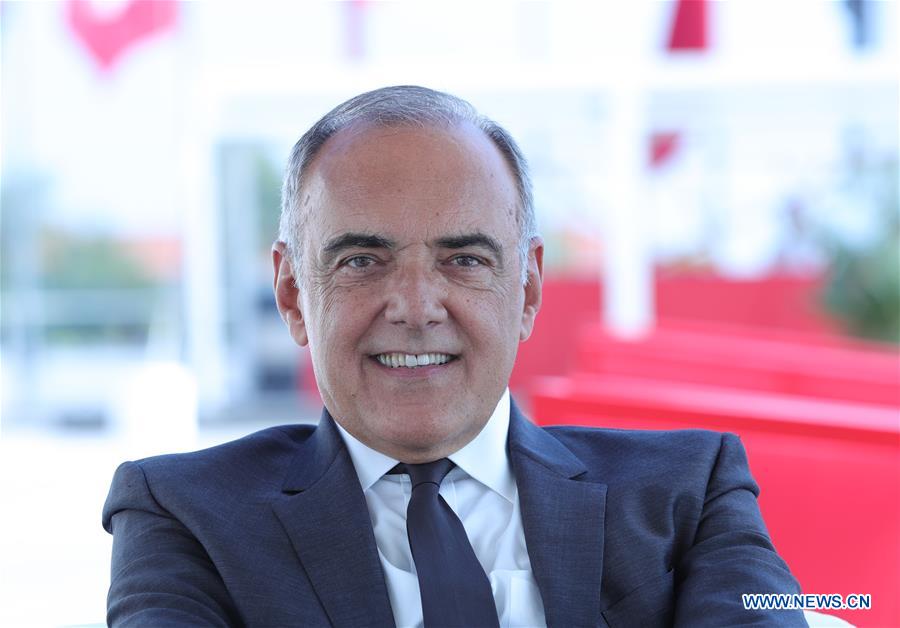
Photo taken on Sept. 6, 2018 shows Venice Film Festival Director Alberto Barbera in Venice, Italy. Cinema is not dead, and it is rapidly evolving, Venice Film Festival Director Alberto Barbera told Xinhua in an interview on Thursday. (Xinhua/Cheng Tingting)
by Stefania Fumo
VENICE, Italy, Sept. 6 (Xinhua) -- Cinema is not dead, and it is rapidly evolving, Venice Film Festival Director Alberto Barbera told Xinhua in an interview on Thursday.
The director of the 75th edition of the oldest film festival in the world said that this year's lineup was "probably one of the strongest ever".
"Most of (the movies) got very strong responses both from the press and from the audience -- this is a sign that not only cinema is not dead, but that it is very much alive," said Barbera, an author and critic who was born in 1950 and who previously directed the Venice Film Festival in 1998-2002.
"The diversity of productions from all over the world is a sign of this exciting moment, which is one of transition -- cinema is changing very fast, and quite radically," Barbera continued.
"There is a lot of good cinema around, a lot of great filmmakers working -- not only established filmmakers but also new talents coming from emerging countries," he said.
With regards to Chinese cinema, Barbera said it is going through a period of transition.
"The Chinese market expanded enormously in the past decade: a lot of new theaters were built (for) a huge mass of new viewers, who were not used to going to the movies," he said.
For this reason Chinese productions have been directed mainly at the domestic audience.
"Most of the Chinese films produced in recent years cannot travel abroad, because they are too related to the taste of the Chinese audience," Barbera explained.
But now the situation is changing rapidly.
"New talents are emerging, and film production companies are trying to diversify their films: not only big comedies and blockbusters...but also auteur films for a sophisticated audience, which could travel (across borders)," he said.
With this in mind, Barbera said that "it would be extremely interesting to develop a strong industrial relationship between the Italian and the Chinese film industries."
"It's not easy, and we are still very far (from making it happen), but it will come, because it's a common interest that we share," he said.
On the new technologies front, last year the Venice Film Festival was the first to launch a section entirely devoted to virtual reality (VR).
"VR is still in an experimental phase," said Barbera. "The technology is developing very fast, and the filmmakers are trying to understand how they can use (it) to find new ways to express themselves."
That said, Barbera stated that VR is not the future of cinema, but rather an accompanying medium.
"We decided to open the festival to VR because I think that a film festival has to be open to any kind of new media element,(and) cinema itself can profit from this new experiment," he said.
The Venice Film Festival ends on Sept. 8.















